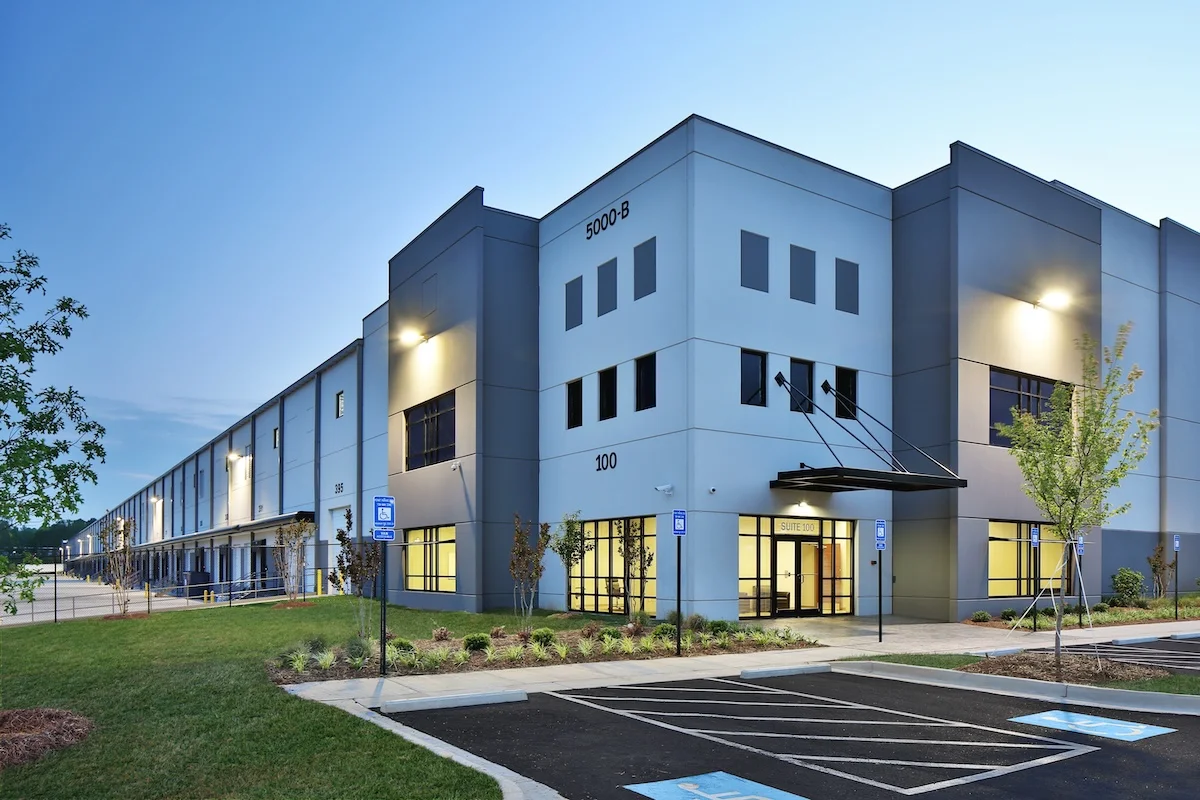Let’s start with a primer on the different types of IRE. There are 5 different types of IRE projects that you can invest in and some of these classifications might be combined into one facility. As an example, a warehouse might also include 10-20% of it’s space as offices to house the employees of that firm.
Flex/office space: Research and design of new products.
Light manufacturing facilities: These are utilized to make a variety of products for retail consumers and businesses.
Food manufacturing facilities: Making and processing foods and beverages for restaurants and grocery stores.
Temperature-controlled facilities: Storing and distributing food and beverage products to restaurants and grocery stores.
Warehouses: Distributing goods to retail stores and businesses, as well as supporting the operations of e-commerce companies.
The Pros
Higher Cap Rates
Cap rates on multifamily projects have dropped to the 3-4% range in many markets. This pushes down cash flows, especially for the first couple of years, and impacts overall returns. Industrial real estate in 2022 is carrying cap rates that are 1.5% to 2% higher than multifamily, making it easier to produce significant cash flow on Day 1.
Multifamily real estate investors enjoyed massive profits over the last few years as investors ploughed money into the asset class, driving cap rates down. It is possible that we’ll see investors pivot out of multifamily and into industrial, driving down cap rates in the process. Although we don’t underwrite this way, there is the possibility that more capital will flow into IRE, driving up valuations to our benefit.
Demand is on the Rise
It’s believed that the U.S. may need more than 1 billion square feet of additional warehouse space by 2025 in order to support the fast-growing e-commerce demand. This outlook suggests that there will be more expansion and development opportunities for real estate investors.
Longer Leases
Industrial leases are usually three to 10 years but can be up to 25 years. In contrast, residential leases are a year, and self-storage properties are month by month. Industrial real estate means that you deal with businesses rather than regular people. This implies longer leases, as business are not as likely to change their location as often. It’s not rare to see that industrial real estate investors rent out their property to the same business for decades at a time. This means that industrial properties tend to generate a stable and passive income for years.
On the flipside, if a tenant leaves your space, there could be significant space that isn’t bringing in income until that tenant is replaced.
E-Commerce Friendliness
One reason that industrial real estate is booming is that in 2020, we saw online purchases grow by 46%. In fact, Amazon and other e-commerce fulfillment organizations are now responsible for roughly 40% of industrial property leases. This number is on the rise, as other brick-and-mortar companies begin to include e-commerce as part of their business models. This trend has led to high demand for warehouse and distribution space all over the U.S., as many retailers are now opting for fulfillment centers over traditional retail space. Tech companies are also responsible for the increase in demand for warehouse and industrial space due to the need for more server farms to support online commerce.
Lower Maintenance
Industrial properties don’t require as much upkeep as some commercial property types. Most leases are triple net, which means that maintenance is the tenant’s responsibility. With longer lease terms, an industrial building owner generally won’t need to renovate their properties as often, since there’s lower tenant turnover.
Investment Stability
While all investments have risks, industrial real estate tends to be more recession-proof than other property types. It’s important to note that the properties themselves tend to hold value or even appreciate over time.
The Cons
Tenant Risk
While one consistent tenant for many years is considered a pro, there are also some downsides. For instance, if that tenant runs into financial trouble and can’t pay rent, the investor will still need to meet their debt obligations.
Longer-Term Leases
One of the advantages of residential leases is that the terms are typically 12-18 months. As inflation rises, lease rates respond quickly. The longer terms of IRE leases provide stability but if rental rates rise quickly, landlords may not be able to take advantage of it as quickly.
Long-Term Vacancy Risk
Sometimes it can be difficult to find a new tenant after a completed lease. For example, if a tenant vacates a purpose-built industrial facility, such as a manufacturing building, the owner might need to invest a significant amount of capital to make the property compatible with other tenants and their different types of businesses.
Oversupply Risk
As mentioned before, the anticipated future demand for warehouse space means that many real estate investors are building only fulfillment centers. If too many of this industrial property type are constructed and the market softens, it could significantly impact occupancy and rental rates, while also reducing property values.
Less “Flipping”
For investors who prefer to gain quick profits and flips, the long-term nature of industrial real estate can be a drawback. IRE tends to produce higher cash flow but comes with less appreciation.
The Bottom Line
While many people believe that industrial real estate isn’t as glamorous as other types, they are vital to the economy. Long-term leases supply investors with stable cash flow and support economic activity for the commercial sector. There is significant growth potential in this property type and if investors who are tired of competing for large multifamily properties start to pivot to this asset class, there is the potential for massive appreciation. If not, the higher/stable cash flow of industrial assets is still very appealing to most investors.


